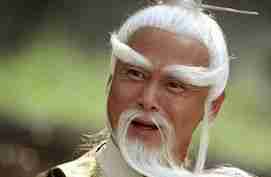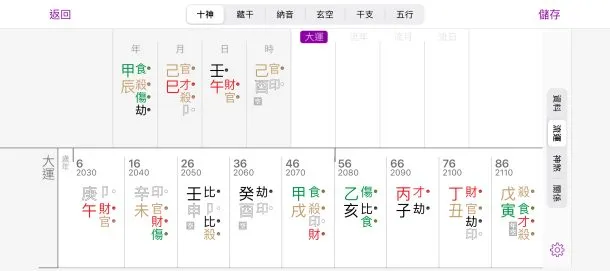For any professional to be good at what he or she does, there cannot be an absence of interest, which then leads or invokes into a passion. A good metaphysics practitioner would have an appreciation of Chinese culture and history, and will not accept just understanding the application and not the theory and background. This is applicable in all professions, not just Chinese metaphysics, like how An excellent software engineer would not only be proficient in coding, but he would understand how coding languages were created and how binary codes work in a computer or good doctor would investigate further into your ailment instead of just prescribing antibiotics and turning you away.
A good metaphysics practitioner would have the following traits:
1) A genuine interest in Chinese culture and history: There’s a lot to be proud of when it come to our history and culture. Chinese metaphysics was born from how our ancestors viewed the universe in Yin and Yang, and how the interactions between Yin and Yang gave birth to all form in stages. The saying goes 无极生太极,太极生两仪,两仪生四相,四相生八卦。Chinese metaphysics or what modern day people would prefer to call ‘fortune-telling’ can never be separated from Yin Yang theory and how our ancestors viewed the universe. A good practitioner would have been interested enough to read the 易经 or Book of Change before touching BaZi or FengShui.
2) Knowledge in astronomy: The theoretical foundations BaZi and ZiWei DouShu (紫微斗数) and sometimes FengShui when Flying Stars are involved are built on astronomy. BaZi looks at the position of the Earth around the Sun, hence the need to adjust for Solar Timing which I’ve always emphasized. Whereas ZiWei DouShu, or what people like to call Purple Star Astrology (which I personally find unappealing) and Flying Stars FengShui looks at the asterisms within the Chinese constellations such as the Ursa Major in the northern celestial hemisphere, more popularly known as the Big Dipper. Only with a strong foundation in astronomy can the practitioner truly appreciate the theoretical developments of metaphysics. Do take note that the Chinese constellations are different from Western constellations due to the independent development of constellations by the Chinese, different from the ones listed by Ptolemy.
3) Seeing this line of work as a calling, not a cash-cow or last resort: Metaphysics is an interesting industry where the perceived value of the service is extremely subjective. Given the fact that there is money to be made, every year, a few new metaphysics practitioners like myself would come forth and start taking on assignments to grab a share of the pie. There is nothing wrong making a living out of this profession, but if money is the core motivation, or worst, the ONLY motivation, it’s hard to believe that the practitioner would be good at what he/she does or have the client’s interests at heart. Nothing great is ever achieved when money is the only motivation – just look at people like Steve Jobs (Apple) , Elon Musk (SpaceX) and Howard Schultz (Starbucks). I hate to say this, but there are a lot of scammers out there who do not have a single clue about the history and theory of Chinese metaphysics and are only doing it for the money.
Here are some tips while you search for the right metaphysics consultant for you:
1) Do your homework: Before you part with your hard-earned money for something that you don’t understand, do read up as much as you can before going to a practitioner for advice. A bit of research will allow you to pick the practitioner that’s reliable and credible. At your first meeting, do not be afraid to bring up questions. A knowledgable practitioner would not be afraid of questions and would not get defensive about it as he/she can come back later after referring back to their resources. If he/she doesn’t have the answer in his/her head because it’s impossible to remember everything, they should be humble about it and let you know. Having an ego and pride in this field is very destructive not just to the practitioner but the client as well. There’s nothing wrong with being unable to remember every single little thing – no professional in the word is able to operate effectively without checking back on their resources once in a while.
2) Ask the right questions: Ask the practitioner which books did and whether they were the modern renditions of the Chinese classics or the actual Chinese classics themselves? Reading the Chinese classics is a must. Yes, it is hard to read and difficult to understand because one sentence written in classical Chinese (文言文) back then would mean one paragraph today, but it is still a must and there can be no excuse not to read it. There are always resources available to translate and explain classical Chinese to modern day Chinese. A responsible practitioner would go to that length to be good at what he/she does. Do not go into a meeting asking if the practitioner can turn your life around with the reading. Practitioners can give advice, but real action has to come from the individual for any kind of change to happen.
3) Case studies: An experienced practitioner would surely have a few engagements that has left a deep impression on him/her – it might be an assignment that made his/her career or one that he/she was particular proud of. More important than being marketing material, these case studies allow the practitioner to build on his knowledge and experience, tracking the development of the case after each engagement. For FengShui, ask for a sample report and how the analysis was done – it doesn’t matter whether he/she can prove that the assignment was indeed real, but rather observe how the explanation is done and which Chinese classic or school or book on FengShui the knowledge was drawn from which will show the real calibre of the consultant. Was the analysis drawn from《阳宅三要》,《黄帝宅经》,《沈氏玄空》or《葬书》etc? You should never accept an explanation that has no basis or theoretical explanation.
The words of a practitioner have real impact on the client, so choose your consultant carefully and take the necessary steps to make sure you’ve engaged a good one. This is you and your family’s life and mental well-being after all.
That’s all for now! I hope you’ve found this useful!
-Sean










